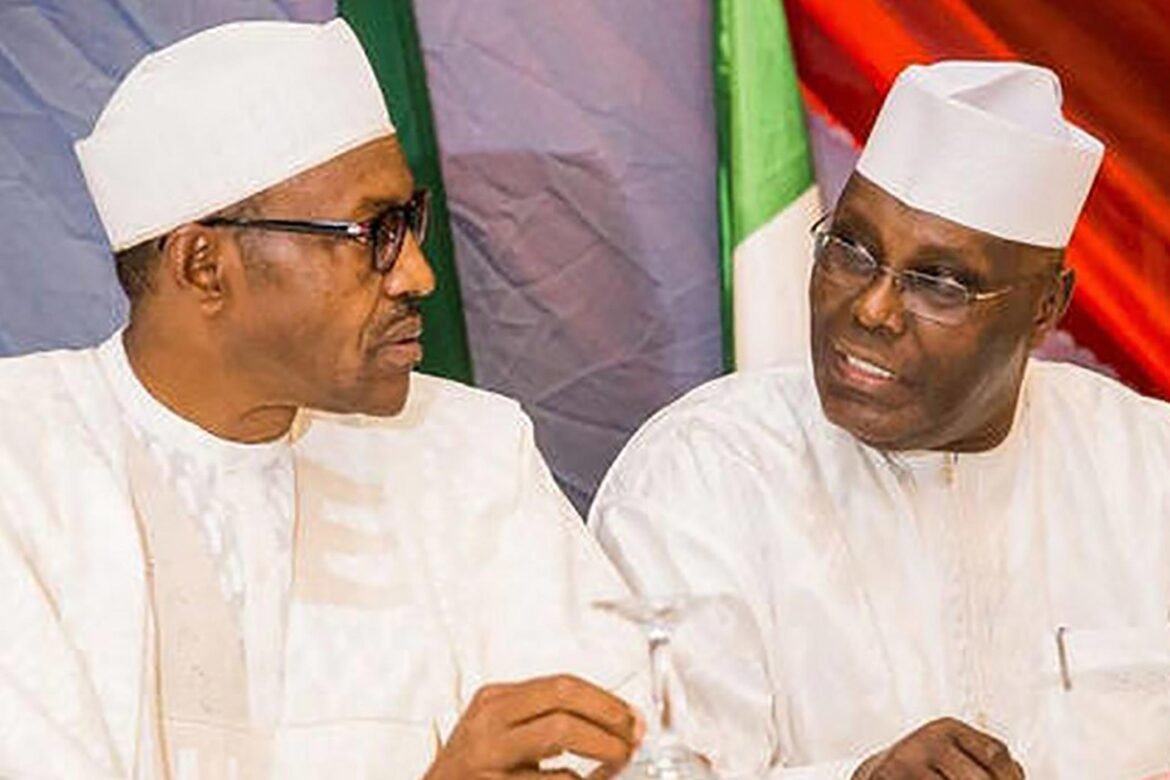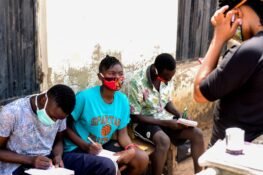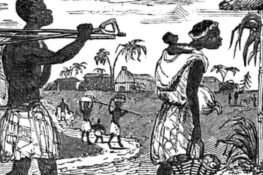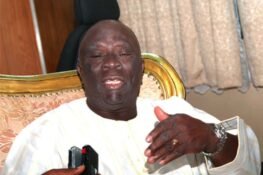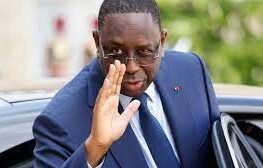Olisa Agbakoba, a former president of the Nigerian Bar Association was the first to lay out the paths open to Atiku Abubakar and the opposition People’s Democratic Party in response to the victory of President Mugammadu Buhari at the just concluded presidential elections.
In suggesting that the former vice forego his right to legally challenge the election result at the tribunal, Agbakoba based his position not only on how previous petitions on presidential elections have turned out, but also on the suspension of Chief Justice of Nigeria, Walter Onnoghen, which he believes has weakened the Supreme Court.
What the former NBA president spells out is a petition that is basically doomed right from the onset. There is an opening for Atiku though, and it will depend on the outcome of the governorship election between Abdullahi Ganduje and Kabir Yusuf.
Beyond that, even if the PDP can prove voter suppression in its strongholds and manages to provide video evidence of what took place in hundreds of polling stations out the 119, 000 where elections took place, it will be next to impossible for the opposition party to prove it would have won without all the irregularities that took place during and after the election.
After the 2007 general elections; and bruised by verdicts of the Supreme Court that declared governorship candidates of the then opposition Action Congress Nigeria in several southwest states and Edo, the PDP led government and National Assembly changed the electoral law making it impossible for any tribunal or court to declare an aggrieved candidate the winner of a governorship or presidential election.
While the APC won overwhelmingly in the north and southwest, the PDP cannot claim to represent the north or have a mandate beyond the south south and southeast, even it had obtained a higher number of votes
This very fact all but destroys the party’s chances of success at the presidential election
The most the Supreme Court can do in circumstances where an election does not meet the minimum criteria of credibility is to order for fresh elections.
Even if he did not say it, this in part is the kind obstacle Agbakoba was referring to. Of course, those ACN victories in court did not come without a casualty in the judicial branch of government.
It came in the person of Ayo Salami who was also suspended as president of the Appeal Court and then left to linger in uncertainty until he reached retirement age.
The irony is that it was the PDP as the ruling party that built the political structures and legal framework making it an impossible task to upturn a governorship or presidential election once the Independent National Electoral Commission has declared a winner regardless of the irregularities that may have occurred in the course of the elections.
The peace committee led by former head of state, Abdulsalami Abubakar has over the years been consistent in its push that all election disputes be resolved through the legal process and not on the streets.
The efforts and success it recorded after the 2015 presidential election were capped by the decision of President Goodluck Jonathan not to contest the results in court.
Yet, the reality is that political disputes that find their way to court still have the potential to cause instability in the polity and if not properly managed, have been known to lead to tensions between the executive and judicial arms of government and even cracks within the judiciary.
The irony is that it was the PDP as the ruling party that built the political structures and legal framework making it an impossible task to upturn a governorship or presidential election once the Independent National Electoral Commission has declared a winner regardless of the irregularities that may have occurred in the course of the elections
The idea that the results of a presidential election can be voided by the court of law cannot be totally ruled out.
If it could happen in Kenya, a country with a similar mixture of ethnic and political volatility as Nigeria, it can happen here too.
In the Kenyan Supreme Court ruling just over a year and half ago, six justices voided the presidential election results after agreeing that the electronic system used in the transmission of results had been compromised.
Amid threats and insults, all that stopped Kenya’s Chief Justice David Maraga from being drawn into a political battle with President Uhuru Kenyatta was that the president’s immediate challenge was winning the fresh elections ordered by the court.
In the lead up to last month’s presidential election, Atiku Abubakar made a startling revelation. He expressed regret about giving room for Bola Tinubu to retain his seat as governor of Lagos back in 2003.
What the former Vice President was really trying to say was that Tinubu has him to thank for how far he has come politically.
In suggesting that the former vice forego his right to legally challenge the election result at the tribunal, Agbakoba based his position not only on how previous petitions on presidential elections have turned out, but also on the suspension of Chief Justice of Nigeria, Walter Onnoghen, which he believes has weakened the Supreme Court
In that sense Atiku, with the choice he made, may have laid the groundwork for the resurgence of the ACN in the southwest through legal and electoral victories and ultimately giving Tinubu a credible platform to negotiate an alliance with Muhammadu Buhari.
So, that one state he was willing to sacrifice in 2003 was what would cost him the presidency in 2019. Lagos wasn’t just any state.
It was and still is the political heartbeat of the southwest. That one state was able to provide the legal and political backing that helped stitch together an alliance that forced a PDP government to remove the president of the appeal court, instigate a crack in the ruling party and ultimately defeat it at the ballot box.
Late last year, Umar Ardo, a top PDP operative published a book; Court And Politics, where he chronicled his experiences seeking redress in Nigerian courts and how the learned jurists consistently chose to rule in favour of political expediency as against the spirit of the law.
But what stands out in the book is his argument that the Supreme Court is not strictly a legal body. It is rather a political institution, a political court and its rulings are subject to political conditions just as much as they are to legal arguments.
And for anyone who has followed the legal challenge mounted by Muhammadu Buhari after the 2003, 2007 and 2011 presidential elections and believes the president was robbed of justice, these are details most would have missed. It didn’t really matter how many votes Buhari got in those elections.
That the elections could have been deeply flawed, as Umaru Yar’Adua would later admit after claiming victory in 2007 was of little consequence.
After the 2007 general elections; and bruised by verdicts of the Supreme Court that declared governorship candidates of the then opposition Action Congress Nigeria in several southwest states and Edo, the PDP led government and National Assembly changed the electoral law making it impossible for any tribunal or court to declare an aggrieved candidate the winner of a governorship or presidential election
What was most visible was that the votes Buhari received as a candidate of various parties between 2003 and 2011 were restricted to the north.
Politically, his party could not win governorship or National Assembly seats in the southern part of the country and there was no way the Supreme Court was going to invalid a presidential election in favour of a divided country or mandate.
In a way, it is because of the risks and dangers of a divided country that a presidential candidate is constitutionally required to have at least 25 per cent of the votes in two thirds of the states.
It is also for similar reasons that both Action Congress of Nigeria and the Congress for Progressive Change needed to die and why APGA today represents politics of the past rather than a party for the future.
The results of the 2019 presidential election pose a similar challenge only this time, the tables are turned.
The outcome of the elections is an expression of a divided country. While the APC won overwhelmingly in the north and southwest, the PDP cannot claim to represent the north or have a mandate beyond the south south and southeast, even it had obtained a higher number of votes.
This very fact all but destroys the party’s chances of success at the presidential election tribunal. It also brings us back to the initial opinion Agbakoba expressed and how a regionally divided electorate leaves no room for a legal process that will serve the interest of peace or political development.
What changes all of that are the governorship elections. PDP has the governor of Kano, Abdullahi Ganduje on the ropes.
It is one of the five states that the governorship elections have been declared inconclusive by INEC with supplementary elections planned for March 23. Winning the governorship in Kano will give the PDP a stake in the north. Adamawa or even Bauchi is not the same.
With Kano, the electoral map will no longer look like a divided country. It will present the PDP the political base to legitimise the legal challenge it has set in motion against the re-election of President Muhammadu Buhari.
It won’t change the fact that a Supreme Court order for fresh elections will be destabilising. All it does is reduce the risk of political instability.
